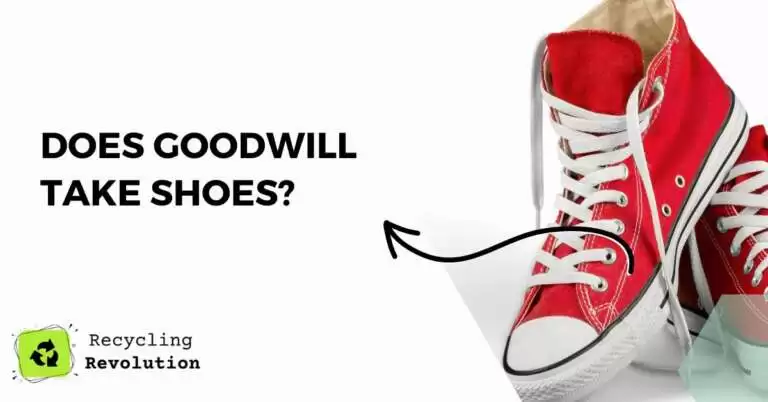By donating items, including shoes, to Goodwill, you not only help the environment by reducing waste but also contribute to the positive impact Goodwill has on people’s lives.
When you donate shoes to Goodwill, you are helping someone in need of affordable footwear while also supporting a mission that extends far beyond that. The revenue generated from your donated shoes funds valuable programs and services that empower individuals to achieve their fullest potential.
Understanding Goodwill’s Donation Guidelines
Explanation of Goodwill’s Mission and Purpose
Goodwill’s mission is to help people reach their potential through learning and the power of work. By donating shoes and other items, you are contributing to this mission and supporting those who are working to overcome barriers to employment.
Overview of Goodwill’s Donation Acceptance Policies
Goodwill accepts a wide range of items in good, usable condition. While they gladly accept shoes, it’s essential to understand their donation guidelines to ensure that the items you donate can be efficiently processed and sold in their stores.
Highlighting the Significance of Following Guidelines for Efficient Processing
Adhering to Goodwill’s donation guidelines allows them to process your donations effectively and allocate the funds generated to their programs and services. It also reduces the burden on staff, as they spend less time sorting through unusable items.
Types of Shoes Accepted by Goodwill
Listing the Various Shoe Types That Goodwill Typically Accepts
Goodwill generally accepts a variety of shoes, including sneakers, dress shoes, sandals, boots, and children’s shoes. They accept shoes for all genders and ages.
Clarifying the Condition Requirements for Donated Shoes
When donating shoes, they must be in good, clean, and wearable condition, with no significant damage or excessive wear. Shoes should be free from tears, holes, or broken soles.
Addressing Specific Footwear Items That May or May Not Be Accepted
While Goodwill typically accepts most types of shoes, specialty footwear, or items requiring professional evaluation might not be accepted. It’s always a good idea to contact your local Goodwill store for guidance on these items.
Table of the Different Kinds of Shoes Goodwill Accepts and Doesn’t Accept
| Shoes Accepted by Goodwill | Shoes Not Accepted by Goodwill |
|---|---|
| Sneakers | Shoes with significant wear or damage |
| Dress Shoes | Specialty shoes requiring professional evaluation |
| Sandals | Dirty or stained shoes |
| Boots | Shoes with broken soles or tears |
| Children’s Shoes | Shoes without a matching pair |
Top of Form
Preparing Shoes for Donation
- Cleaning and Sanitizing Shoes before Donating – Before donating your shoes, it’s essential to clean and sanitize them to ensure they’re in the best possible condition for the next owner. This includes wiping down the exterior, cleaning the soles, and airing them out to remove any odors.
- Tips for Sorting and Organizing Donated Shoes – When preparing shoes for donation, it’s helpful to sort them by type and size. Pair shoes together using rubber bands or by tying the laces together to keep them organized.
- Packaging Guidelines for Dropping off Shoes at Goodwill – Place your shoes in a sturdy bag or box, clearly marked “Shoes” to make it easier for Goodwill staff to process your donation.
Alternatives for Shoes Goodwill Does Not Accept
Shoes with Significant Wear or Damage
If your shoes are too worn or damaged to be donated to Goodwill, consider repurposing them for other uses or recycling them through programs like Nike’s Reuse-A-Shoe.
Specialty Shoes or Items Requiring Professional Evaluation
For specialty shoes or items that require professional evaluation, consider contacting a specialized organization or store that may be able to accept and utilize these items effectively.
Suggestions for Recycling or Repurposing Shoes That Goodwill Cannot Accept
If Goodwill cannot accept your shoes, consider upcycling them into creative DIY projects or donating them to a shoe recycling program. Some organizations can break down these shoes for materials, which can be used in the construction of playgrounds or athletics fields.
Additional Considerations
Exploring Regional Variations in Goodwill’s Shoe Acceptance Policies
Goodwill donation policies may vary slightly by location. It’s always a good idea to contact your local Goodwill store to understand their specific policies regarding shoe donations.
Addressing Common Concerns Related to Donating Shoes
Many people wonder if their shoes are in good enough condition to donate. If your shoes are free from significant damage and can still be worn comfortably, they are likely suitable for donation.
Information on Tax Deductions for Donated Shoes
When you donate shoes to Goodwill, you may be eligible for a tax deduction. Be sure to ask for a donation receipt and consult with a tax professional to understand how this applies to your circumstances.
Conclusion
FAQs
How do you pack shoes for donations?
Pack your shoes in a sturdy bag or box, and clearly mark it “Shoes”. It’s a good idea to pair shoes together using rubber bands or by tying the laces together to keep them organized.
Is it okay to donate shoes?
Absolutely! Donating shoes is a great way to help those in need of affordable footwear and support Goodwill’s mission of empowering individuals and families.
Should you clean shoes before donating?
Yes, it’s essential to clean and sanitize shoes before donating. This ensures they’re in the best possible condition for the next owner.

